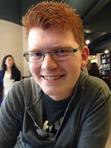Reasons For Reading
(Originally published: November 2012)
"What Should Children Read?" Opinionator, New York Times:
Malcolm Gladwell, author of “The Tipping Point” and a New Yorker staff writer, told me how he prepared, years ago, to write his first “Talk of the Town” story. “Talk” articles have a distinct style, and he wanted to make sure he got the voice straight in his head before he began writing. His approach was simple. He sat down and read 100 “Talk” pieces, one after the other.
The story nicely illustrates how careful reading can advance great writing. As a schoolteacher, I offer Mr. Gladwell’s story to students struggling with expository writing as evidence that they need not labor alone. There are models out there — if only they’ll read them!
That quote from Sara Mosle, accurately sums up how reading is a multi-faceted pastime with more than one goal or benefit. We read to pass the time, and because we enjoy reading for reading's sake, but that's not all. Some of us, those with a love of words in and of themselves who've got some sort of "word of the day" app on their phone, and, when they discover that "fugacious" exists as a word, will try to use that word as many times in the next few days in order to secure its place in their literary lexicon, will read for the sheer utility of it. They're the ones who look at "fugacious" and try to come up with essay examples where the word could be used.
(fugacious -- n: fleeting; tending to disappear)
It should be perfectly clear that reading will, in turn, advance a person's writing. This is especially true for the English Leaving Cert. paper, where a full quarter of your grade (100 marks out of 400) is given to the composition section. Here, students are given seven prompts and are asked to write 4/5 pages on one. A big thing they're looking for here, as well as personal expression, is if students can recognize and acknowledge the differing styles of writing -- a plot- and adjective-driven short story being different to the expositional persuasive speech.
How else could you possibly do well in this section without both reading from a wide set of genres and practising the different styles of writing expected of you? In recent years, I've anecdotally seen a rise in the amount of students learning off essays, which seems to me like the biggest waste of time in the history of education, and I honestly can't fathom why teachers would actively encourage the practice.
The much better strategy, at least from this student's perspective, is to practice writing on topics, rather than essay titles, especially when it comes to the likes of reports, speeches, or (in)formal magazine and newspaper articles. In 2012, one of the prompts was "a feature article for a newspaper or magazine on the role played by memory and the past in our lives". A savvy student, having practised that essay, would now probably be able to complete 2007's "Write a speech in which you attempt to persuade an audience that the past should not be glorified", and, perhaps at a slight push, 2009's "Write a personal essay on the topic of daydreams", or indeed any essay involving the Celtic Tiger.
Reading, as well as being an enjoyable pastime, can obviously feed into a person's essay writing ability. I'm currently reading Victor Hugo's Les Misérables, for enjoyment, its usefulness for essays, and any book widely considered to be "one of the most important novels ever written" absolutely deserves my attention, not least since I want to get into a career that involves writing in some way, shape, or form.
I don't know how much weight my recommendations carry, seeing as I'm a student and not a teacher, but if I were asked to recommend books for the Leaving Cert. syllabus, with the objective of both instilling an enjoyment of reading and being beneficial in doing the Leaving Cert. course. There are no people who "don't read", there are merely people who haven't found the right book yet.
Northern Lights, Phillip Pullman. Though generally receiving less favorable reviews than the oft-compared-to Harry Potter series, I found both the plot and language to be far superior. Books should challenge you and make you think; the His Dark Materials trilogy does both.Fall of the Giants, Ken Follett. I recommend this to Leaving Cert. History students for its historical content rather than its prose, which is stilted and awkward in places.The Girl with the Dragon Tattoo, Stieg Larsson. At times, I feel like I'm the only one who enjoyed this series, but in terms of general fiction with a thriller/detective spin, I haven't read better than this in a long time.Finally, the best investment a student wanting to read more (and improve their Leaving Cert. English abilities) would be to get a Kindle. I've made the cost of the device back several times over due to the fact that Kindle books are often cheaper than their dead-tree comrades. Either as an introductory offer or due to a bug, I bought Winter of the Worlds for 40c (yes, €0.40) when it retailed for €18 in bookstores. Assuming you're going to be reading books anyway (which I am, and you, Leaving Cert. English student, should be), a dedicated, portable reading device is an incredible investment.
Now, if you'll excuse me, I've a Macbeth essay to get to.



